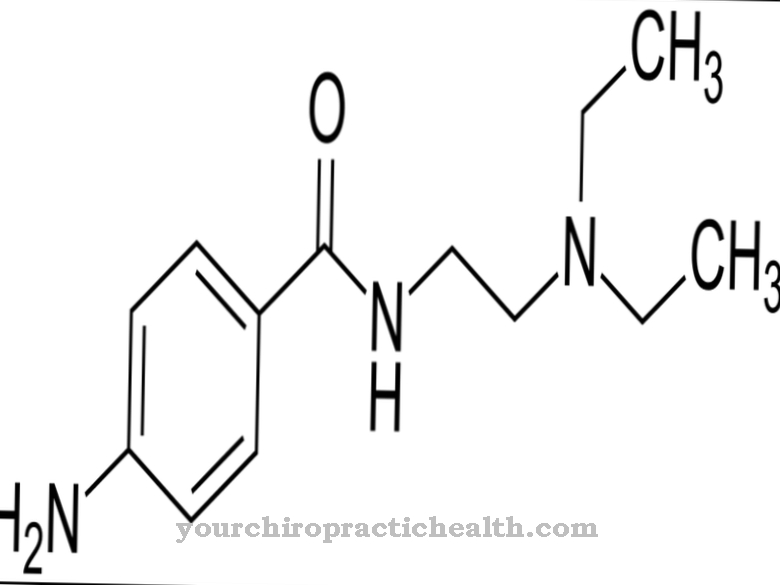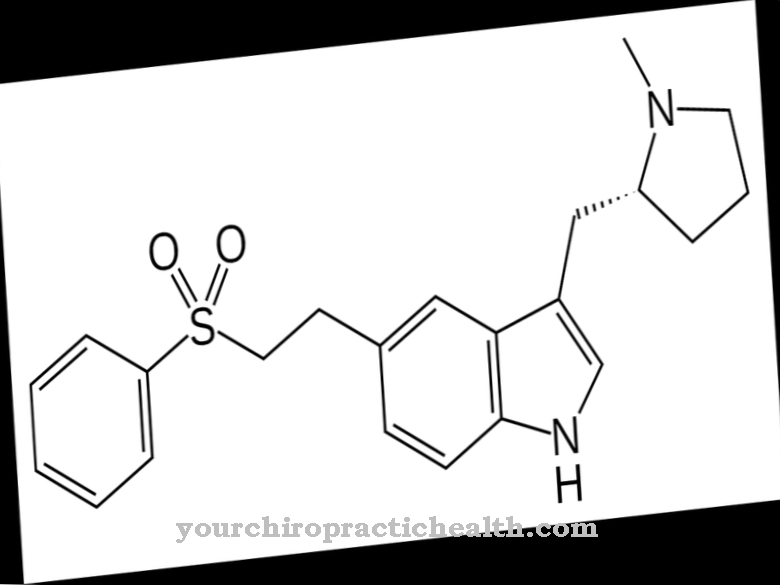Belimumab is a monoclonal IgG1 lambda antibody approved for human treatment. It was approved in the EU in 2011 as a treatment for systemic lupus erythematosus. It is used to support conventional therapies if they do not lead to any significant improvement in the condition of the disease.
What is belimumab?

Belimumab (Belimumabum) is sold under the trade name Benlysta®. The genetically engineered monoclonal antibody is used to treat systemic lupus erythematosus (SLE). Its IgG1 molecule acts on B-lymphocytes and prevents their auto-immunological reaction.
In systemic lupus, vessels within the connective tissue and the skin are blocked by leukocyte deposits (collagenosis). The exact cause of the disease, which affects an average of one in two thousand people, is as yet unknown. However, medicine assumes an autoimmune response.
Lupus erythematosus is often accompanied by symptoms such as flu-like weakening of the body, muscle problems, polyarthritis, butterfly erythema on the cheeks and nose and papules with flakes of skin. In systemic lupus, internal organs are also affected: the central nervous system, kidneys, pleura and pericardium. The patients often develop anemia and have an elevated antibody status (anti-DNA-AK, anti-Sm, ANA).
Pharmacological effect
Belimumab blocks the growth of B leukocytes in the immune system, so it has an immunosuppressive effect. It blocks the activity of the BLyS or BAFF cytokine. It is a messenger substance of the immune system that is responsible for the growth of B cells ("B-lymphocyte stimulator"). If there is too much BLyS in the body, various autoimmune reactions occur at the same time.
According to some clinical studies, the monoclonal antibody has a significant effect on the course of SLE. However, so far only efficacy studies have been carried out on SLE patients with less severe disease courses who did not have severe lupus kidney inflammation and also no nerve impairment. Under certain circumstances, this could lead doctors to resort to the older, proven rituximab instead of belimumab, which also improves severe lupus.
The effect of the monoclonal antibody has been proven in patients who respond to conventional treatment with corticosteroids (more severe cases) and ASA (less severe cases) as well as cyclosporine A, azathioprine and cytostatics (all in off-label use) no or only less.
The fatigue that often occurs in connection with lupus erythematosus (severe tiredness) can be significantly improved with the administration of belimumab. Belimumab binds to the soluble B-lymphocyte stimulator protein BLyS, which is deactivated and cannot have an autoimmune effect.
The monoclonal antibody therapy may also be suitable for other autoimmune diseases in which an increased BLyS concentration in the blood can be detected. The antibody protein is broken down by being metabolized to peptides and amino acids by proteolytic enzymes. How the transformation works in detail is so far unclear.
With regard to therapy in children and adolescents, there are also no reliable scientific data to date. In animal experiments, the administration of belimumab did not damage the embryo or the fertility of the mother. The number of B leukocytes returned to normal a few months after the birth. It is not known whether belimumab can promote cancer.
Medical application & use
Belimumab is used in systemic lupus erythematosus (SLE) when the disease does not improve significantly despite administration of immunosuppressants. In the first month of treatment, a short-term infusion lasting approximately one hour is administered on day 0, day 14 and day 28. From the second month onwards, the SLE patient receives his intravenous administration once a month. Patients with obesity are given a dose of 10 mg / kg body weight and underweight persons accordingly less. The dose level does not affect the efficiency of the drug administered, but higher doses usually lead to stronger side effects.
The agent is commercially available as a powder and must first be made into a concentrate for infusion of 80 mg / ml. The active ingredient has a medical half-life of around 19 days. The body breaks down an average of 215 ml / day. No dose adjustment is necessary in patients with impaired renal function, as the body excretes the drug accordingly: People with proteinuria have an increased excretion of more than 2 g daily. If creatinine excretion is delayed, the active substance is broken down more slowly.
An antihistamine and / or an antipyretic may be given before the infusion. If there is no improvement in patients with systemic lupus erythematosus after six months at the latest with Benlysta, treatment with the monoclonal antibody is usually discontinued.
You can find your medication here
➔ Medicines for rash & eczemaRisks & side effects
Side effects that can occur during belimumab therapy are: fever, white blood cell deficiency, diarrhea, nausea, vomiting, infections, progressive multifocal leukoencephalopathy (PML), sleep disorders, migraines, headaches, rashes, facial edema, fatigue, depression and pain in Arms and legs.
Belimumab should not be used in case of antibody hypersensitivity, vaccinations with live vaccines, chronic and recurrent infections, severe lupus kidney inflammation, severe lupus of the central nervous system, HIV infection, hypersensitivity reactions, malignancies, hepatitis B or C, IgA- Deficiency, hypogammaglobulinaemia and after major organ or stem cell transplants.
In order to be able to initiate the appropriate medical measures immediately if any hypersensitivity reactions occur, treatments with the monoclonal antibody should only be carried out in facilities in which appropriate medical specialists are available.
Use during pregnancy is only recommended if no alternative is available. The agent also passes into breast milk. It is therefore recommended that breastfeeding women stop breastfeeding as soon as possible.
Belimumab should not be co-administered with cyclophosphamide and other immunosuppressive agents.





.jpg)





















